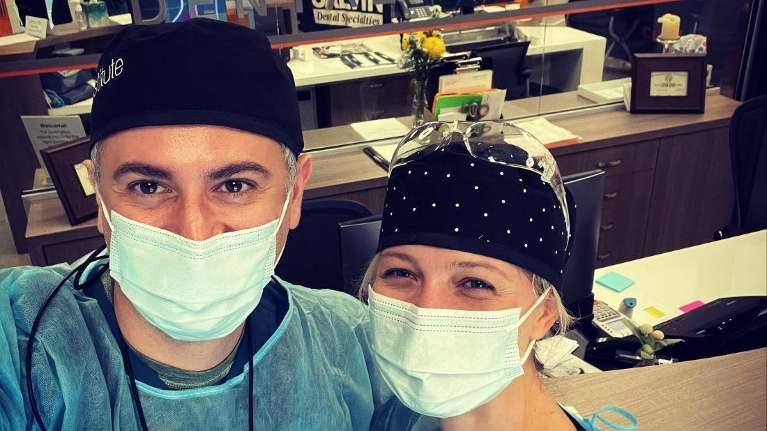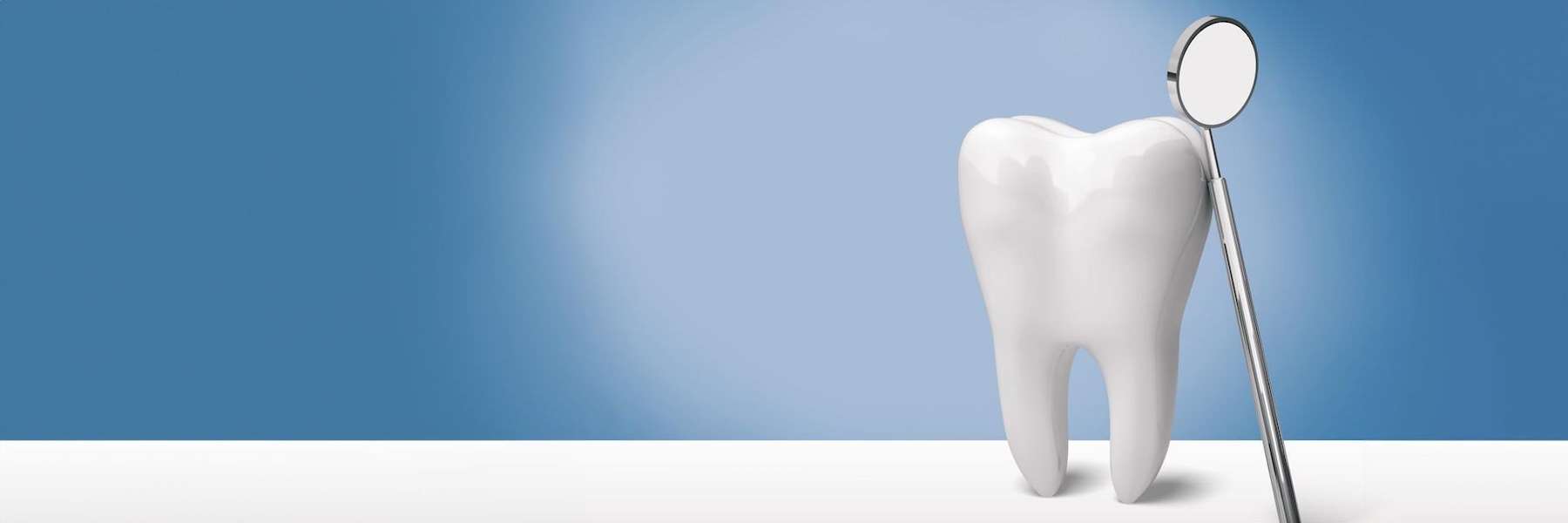
I see a great deal of confusion among new patients who come to my practice regarding gum disease, and I want to address this.
No one likes to give bad news, and there is nothing worse than telling a client I just met that they have gum disease eating away at their jaw bone and gums—and they just had an exam and cleaning six months ago at another dental office! Dentists are trained to tell patients clinical truths without sugarcoating them. So, today, we'll start from the beginning in a language everyone can understand.
Advanced gum disease, or periodontitis, is caused by bacteria growing in the mouth. Well over 1,000 species of bacteria are directly associated with gum disease. These bacteria release toxins or poisons into the patient’s bloodstream, and if not diagnosed early, the toxins will cause jaw bone and gum loss, which are the main support systems that attach teeth to the jawbone.
Studies have also linked gum disease to heart problems. There are four stages of gum disease, and fortunately or unfortunately, the disease runs its course completely painless. It is only during later stages that patients generally start feeling discomfort.
Now, we'll address some of the common questions I hear from patients about gum disease.
Why Can’t You Just Give Me Antibiotics?
Antibiotics don’t work well on gum disease-related bacteria and generally wipe out both good and bad bacteria. However, We use antibiotics as an adjunct to gum disease therapy to make the main therapy more effective.
What Is the Difference Between a "Deep Cleaning" and a Regular Teeth Cleaning?
In order to treat gum disease, the infection must be approached from different angles. Periodontal disease therapy almost always starts with a procedure called “scaling and root planing.” Some people call it “deep cleaning." I personally don’t like this term because it improperly describes what’s being provided.
A routine teeth cleaning isn’t therapeutic and doesn’t treat disease. Therapy or treatment is what makes things better. The procedure involves the mechanical removal of bacteria, toxins, and infected tissues from the root surfaces of teeth below the gumline. We then use antibiotics in slow-release microspheres deposited into the gums to continue targeting deeply embedded bacteria in the gums.
Lasers and gum surgery can also be used to treat this disease.
I Had a “Deep Cleaning” Done 3 Years Ago. Why Do I Need It Again?
I see this question come up all the time.
The patient had gum therapy years ago, and after a substantial gap between dental visits, we find evidence of active gum disease still present. As we discussed earlier, periodontal therapy removes bacteria, toxins, and infected tissue. After about only three months, gum disease bacteria reattach to the roots of teeth, and the process starts all over again.
To be brutally honest, we cannot cure gum disease; we can only stop it from progressing. That requires constant, lifelong treatment. So, without proper ongoing therapy, gum disease simply returns.
What Can I Do to Prevent Gum Disease From Damaging My Gums? (I Don’t Want to Lose My Teeth)
Once the initial periodontal therapy is completed, patients are placed on a custom periodontal maintenance schedule. Periodontal cleaning is a fancy term for a specialized teeth cleaning that removes bacteria below the roots. The patient’s gums are also measured to ensure the initial therapy's efficacy. That is the only way to tell if gum therapy is working.
If we still see evidence of active gum disease, such as bleeding gums, we start investigating other treatment options. Ninety percent of patients respond very well to the initial therapy as long as they follow the 3-month periodontal maintenance protocol and practice oral hygiene at home.
Special instruments and ultrasonic scalers are used to clean the roots of teeth, keeping them healthy and free from bacterial growth and buildup. Some medical conditions, such as uncontrolled diabetes, require a more aggressive approach to gum therapy.
I Just Had a Teeth Cleaning and Exam 6 Months Ago, and They Never Told Me I Have Gum Disease
Several scenarios apply here. Either the condition started within six months. This is why it is very important to see a dentist on routine visits (emergency extractions are not routine visits) to catch problems early before they get out of control.
Or the disease had not been diagnosed. Depending on the country of origin or dental training, some places in the world don’t practice a “whole mouth” approach and concentrate on “fixing” immediate problems as they arise. This approach does not help a patient minimize the risk of future problems.
For example, patients with the latest stage of uncontrolled periodontal disease generally lose some or even all of their teeth. At this stage, not much can be done other than removing teeth and replacing them with plastic dentures. Had this condition been appropriately managed, the patient wouldn’t have lost all their teeth.
I Know I Have Gum Disease, But Why Can't I Just Get a Regular Cleaning?
A regular teeth cleaning is intended for patients without the presence of gum disease. In addition, it involves the removal of deposits such as stains, plaque, and tartar above the gums. Therefore, it does nothing for patients with gum disease and gives them a false perception of something being done.
In reality, the disease still progresses until patients start noticing loose teeth or gum-related abscesses. Once patients are diagnosed with gum disease or periodontitis, they remain in this category and should be treated accordingly for the best outcome. The analogy I can give you is asking for a car wash when an engine malfunctions. The wash won’t fix the engine issue and is simply the wrong approach.
Your Best Defense Against Gum Disease
Being proactive about your dental health can help you avoid problems like gum disease. This includes:
- Consistent daily brushing twice and flossing once
- Routine visits to your South Charlotte dentist every six months for teeth cleanings and exams
- Limiting your sugar intake
- Drink plenty of water
Consider switching to an electric toothbrush if you haven't already done so to help make brushing your teeth easier. I am also happy to discuss adding an antibacterial mouth rinse to your home care routine to help minimize bacteria and plaque buildup.
In conclusion, I believe in providing patients with knowledge about their condition. Knowledge is a tool that can be used successfully to make the best-educated decision regarding one’s health.
If it's time to schedule your next professional teeth cleaning and exam, contact your dentist in South Charlotte at (704) 317-7337.
